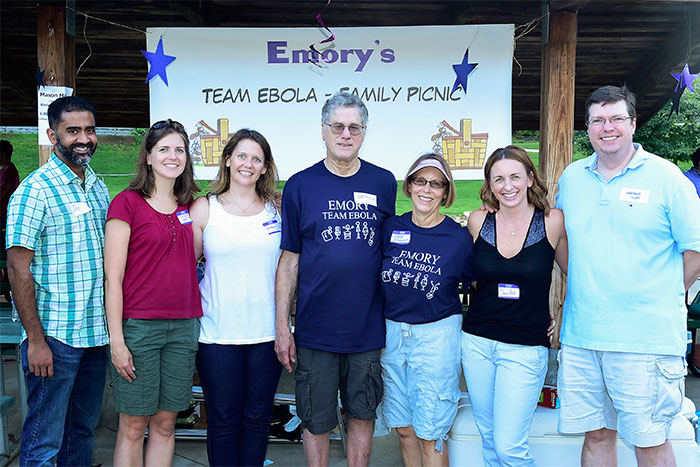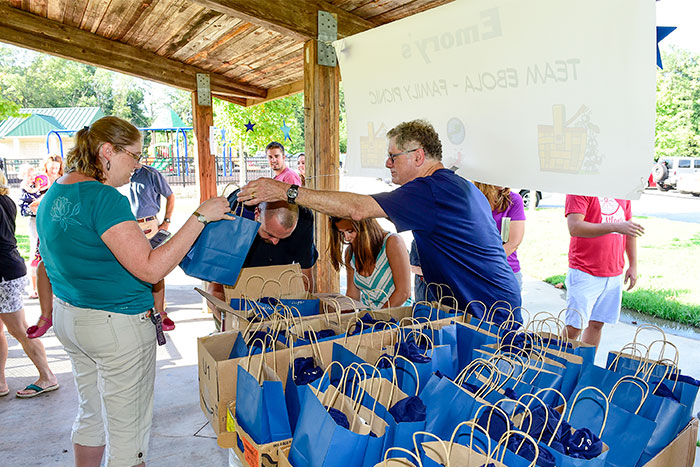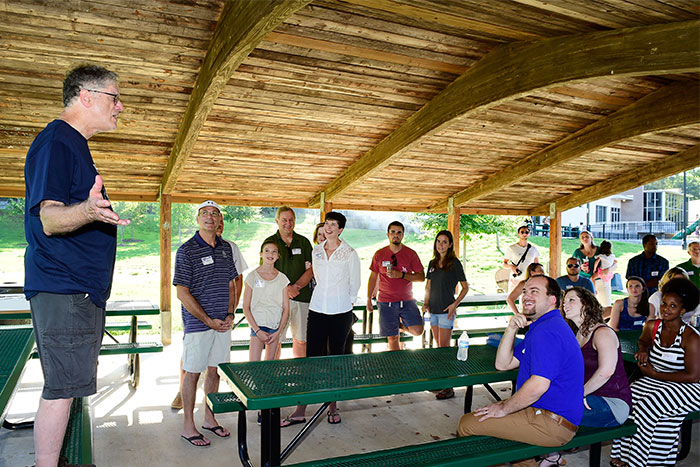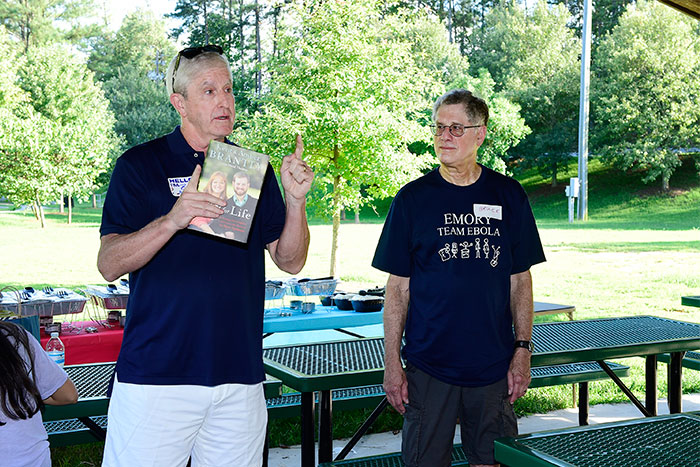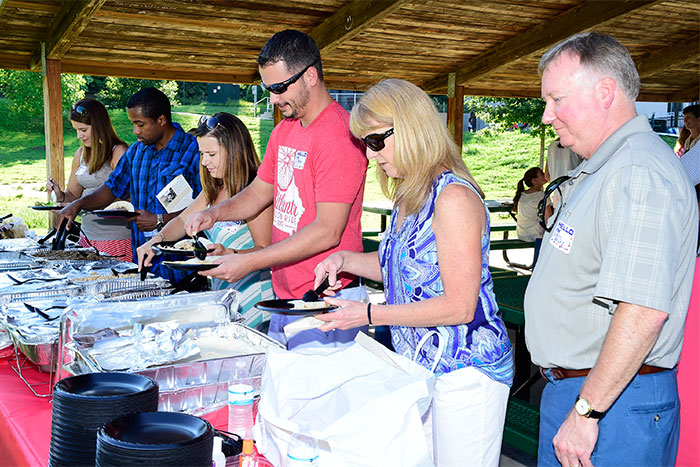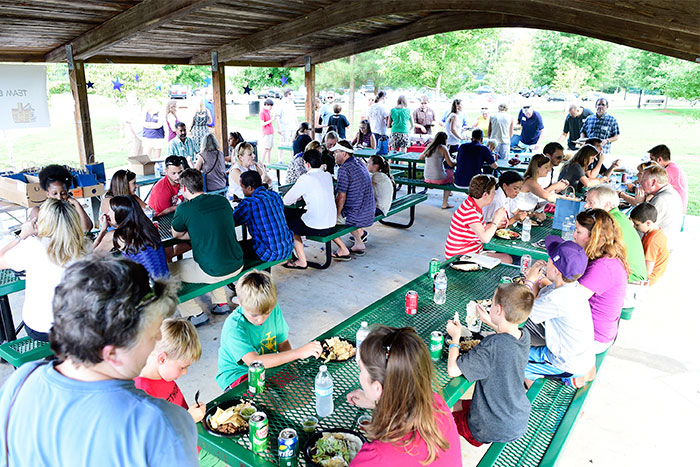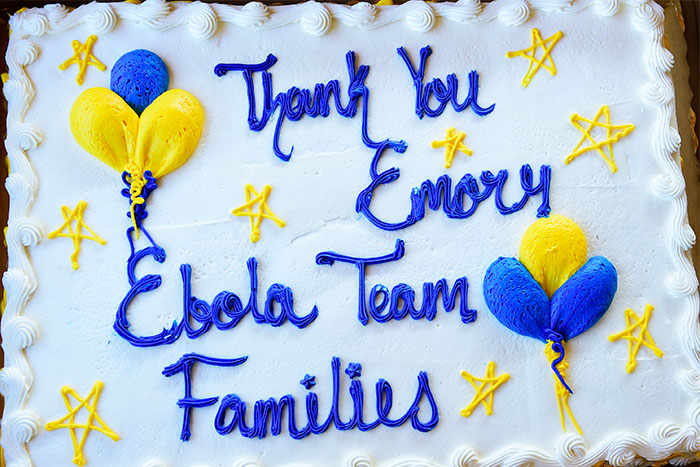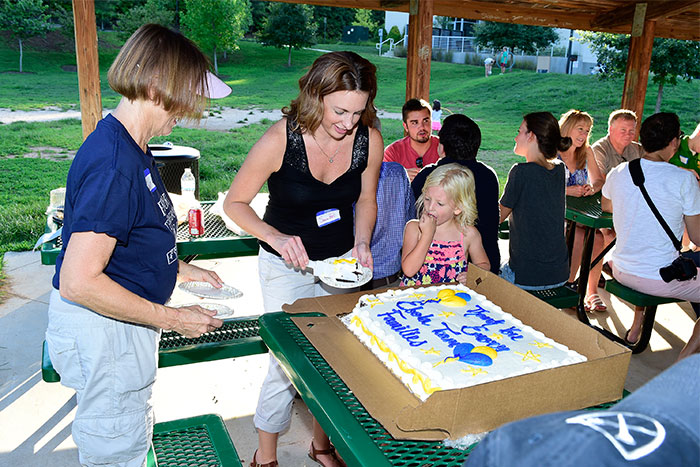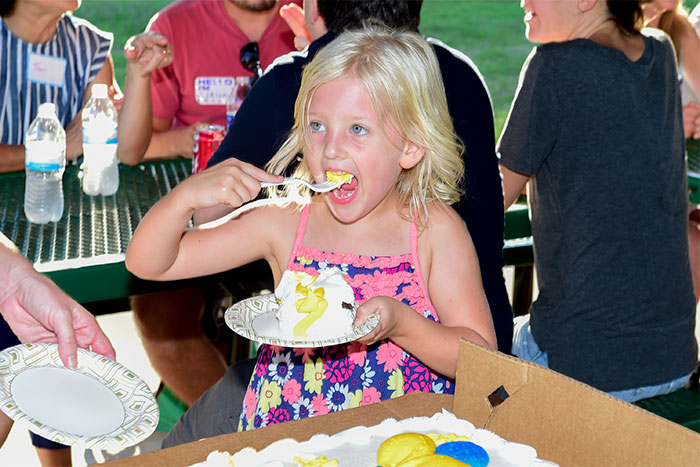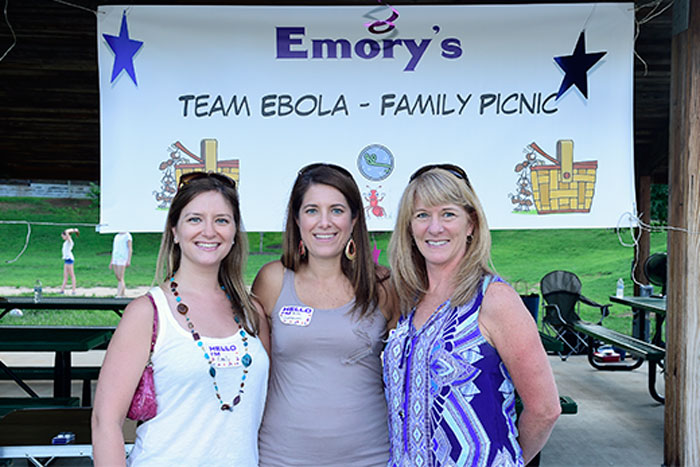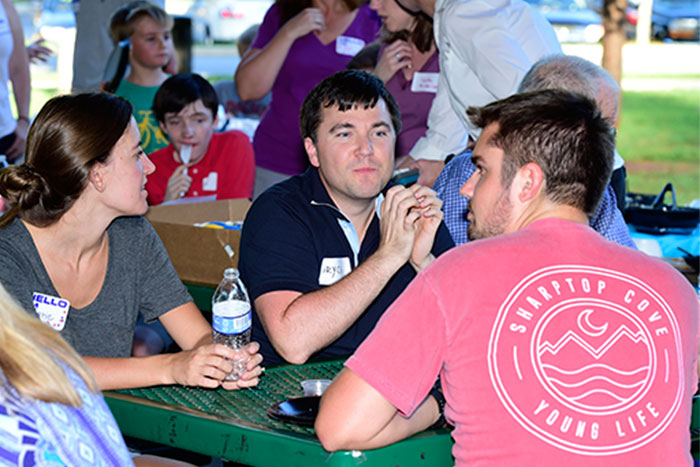A year after the first two patients infected with the Ebola virus left Emory University Hospital disease free, members of Emory’s Serious Communicable Diseases Unit (SCDU), where the patients were treated, held a picnic to say thanks.
The gratitude went out to family members of the Emory employees. They were recognized for their support while members of “Team Ebola” worked countless hours and multiple shifts last year caring for patients diagnosed with Ebola virus disease.
Doctors, nurses, lab technicians, environmental health and safety members, administrators and more brought their loved ones to Mason Mill Park on Sunday, Aug. 23, for the celebration. Everyone dined on Mexican food followed by a large “thank you” cake, while introducing family members to colleagues. Finally, faces could be put with names from the many stories that had been told and heard.
“This gathering is for the family members of our staff who adapted to us being away from home for hours and even days at a time, supporting us and cheering us on for the work we were doing to care for our four patients diagnosed with Ebola virus disease,” says Bruce Ribner, MD, professor of infectious diseases and medical director of the Serious Communicable Disease Unit at Emory University Hospital.
As Ribner told families gathered at the event, “You made it possible for us to do our jobs and respond to a specific need. Without your support and dedication, our jobs would have been much more difficult.”
Emory was thrust into the international spotlight when Kent Brantly, a doctor serving as a medical missionary in Liberia, was admitted to Emory University Hospital on Aug. 2, 2014, becoming the first person with Ebola virus disease treated in the United States.
Over the next three months, Emory's Serious Communicable Diseases Unit successfully treated four patients with the disease:
- Brantly, who was discharged after an emotional press conference on Aug. 21, 2014.
- Nancy Writebol, also a missionary in Liberia, who was admitted Aug. 5, 2014, and quietly discharged, according to her wishes, on Aug. 19.
- Ian Crozier, who was admitted on Sept. 9 and discharged Oct. 19. A doctor who volunteered with the World Health Organization at the Ebola Treatment Unit in Kenema, Sierra Leone, Crozier was the most critically ill of Emory's Ebola patients, requiring both kidney dialysis and a ventilator.
- Amber Vinson, who was transferred to Emory University Hospital on Oct. 15 and discharged Oct. 28. A nurse, Vinson was treated at Emory by request of the CDC and Texas Health Resources after becoming infected while caring for a patient with Ebola virus disease at Texas Health Presbyterian Hospital in Dallas.
Ribner and a team of specially trained nurses, physicians, lab technicians, facilities management staff, environmental safety staff and many others had been preparing for more than 12 years to receive and treat patients with serious communicable diseases.
The SCDU, a special isolation unit established in 2002 with assistance and funding from the CDC, was originally designed to care for CDC scientists and staff who contracted highly communicable diseases in laboratory settings or while traveling abroad. Quarterly trainings are held with team members to keep everyone up to speed on procedures and protocols.
And while those trainings continue now with a larger staff and more employees wishing to be a part of the effort, the “Team Ebola” picnic was a reminder of just how important family is when challenges arrive, big or small.

